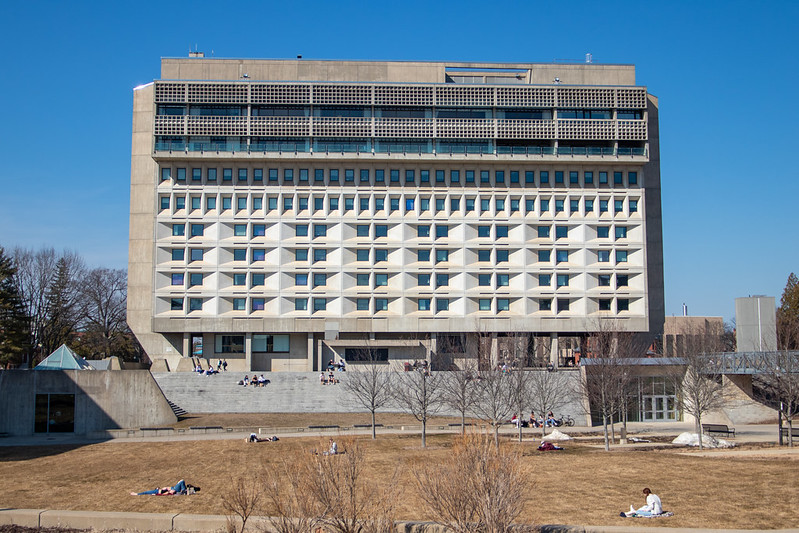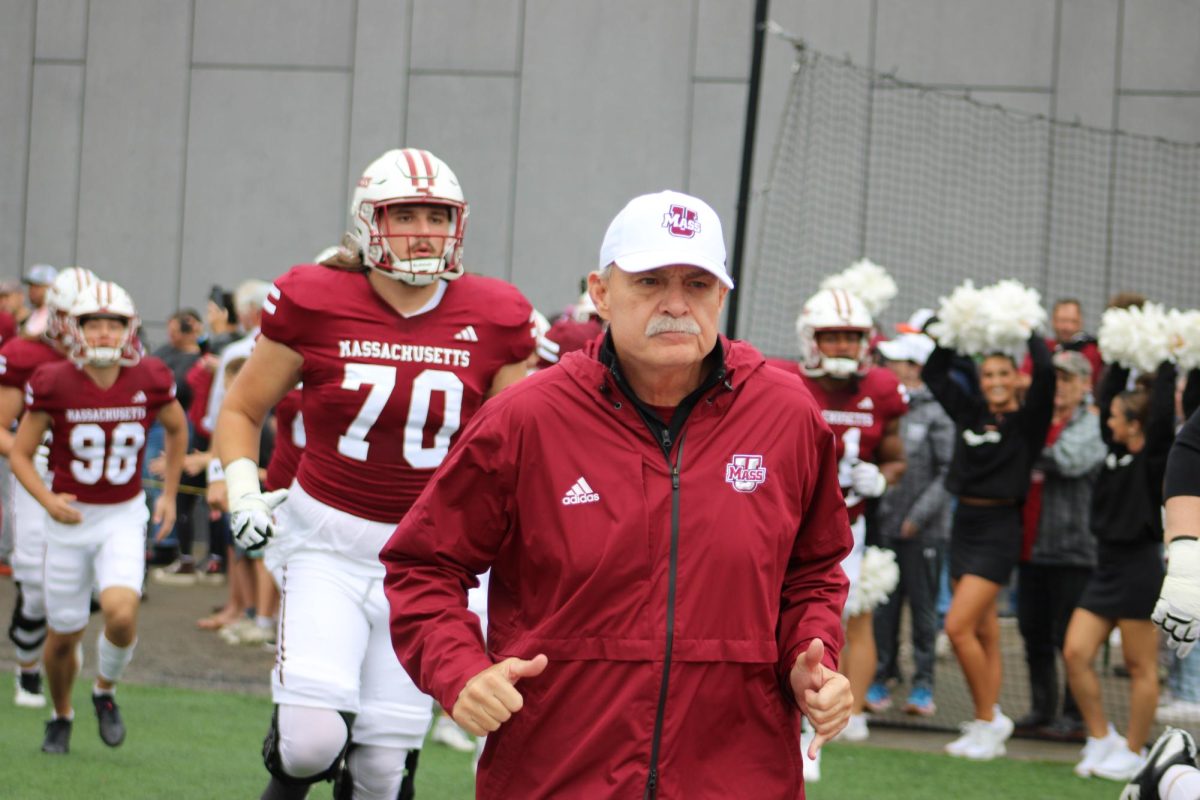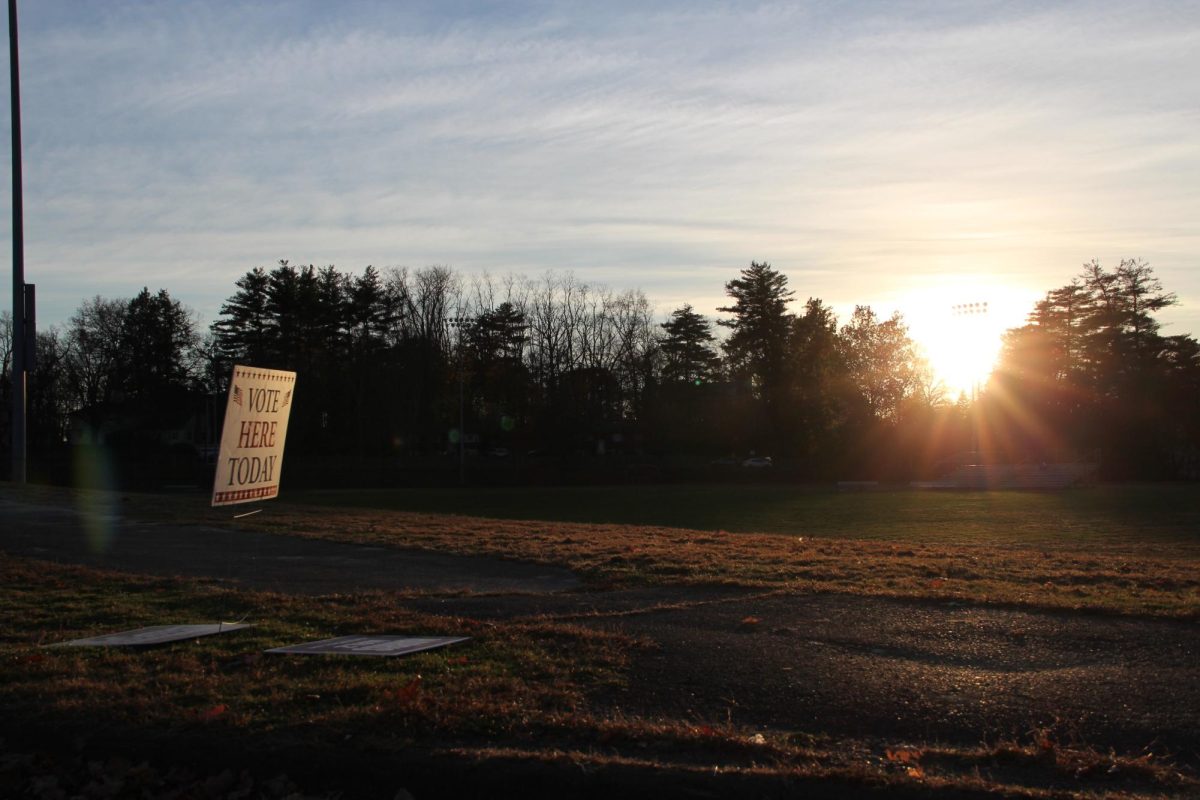Since the beginning of the pandemic, the University of Massachusetts has sought out different ways to communicate with the community in order to keep students and faculty informed. In a new effort to stop email overload, Dr. Laura Balzer, an assistant professor at the School of Public Health and Health Sciences, teamed up with Student Affairs and Campus Life to produce content to keep the community informed.
Students and faculty can access these videos on YouTube and the “My UMass” app. The app now contains an opt-in option to get weekly notifications for new videos and access to the previous week’s video in order to stay up to date.
With over 10 years of experience of researching the epidemic of HIV, Balzer is qualified as one of the main people who overlooks the UMass COVID-19 dashboard. Now, in affiliation with SACL, she is able to convey a main topic in her weekly videos from reviewing the dashboard to explaining the most recent trends in a shorter and simplified manner.
Balzer says that the test results on the COVD-19 dashboard has been very encouraging lately for multiple reasons.
“There’s a couple of reasons why the positivity rate is lower. One huge reason is that people are getting outside and enjoying this beautiful weather — risk is dramatically lower when we’re in really highly ventilated areas, and the best way to get ventilation is to get outside,” she said.
In order to keep the trend in lower positivity cases, Balzer has been using her knowledge of science and data in order to inform the community of any updates in a simple way. “I try to embrace empathy and try to put myself in the position of each one of our community members and say ‘Okay, what’s a universal method that applies to everybody?’”
“At the same time, there’s some basic principles that we can continue to use to promote risk minimized behavior and understand where each one of us is coming from,” added Balzer.
Balzer is “knee deep” in data Monday through Friday while covering the COVID-19 dashboard, and with the help of campus leadership, she informs the UMass community with the most accurate information.
“Doing these analyses everyday really helps shape the overall picture for my weekly updates and what I think the key messages are for the YouTube videos,” Balzer said.
Pete Smith, the director of SACL Communications and Professional Development, is one of the people responsible for nonacademic messaging between UMass and students and has been focused on communicating with students throughout the past year of the pandemic.
Smith says that there is a desire for students and faculty to get accurate updates on the COVID-19 trends within the community, but with email fatigue, a lot of messages were unread. This lead SACL to take on a different approach.
“We joined forces with Public Health Promotion Center and the people working with Laura Balzer to strategize on what a new communications structure could look like,” Smith said.
With their data, they try to keep the videos under 90 seconds for the audience to stay engaged and fully understand the key point.
“With [Balzer], we really made the commitment to have these tiny little updates that would be like bursts of communication. The plan was to increase activity, increase usage in [the] ‘My UMass’ app to and use that as a channel for communicating,” Smith added.
Balzer wants her videos to engage the audience through data and analysis without playing the “blame game” on those in the UMass community.
“We see top-down approaches focusing on blaming-and-shaming and punishing ‘bad’ behavior. More often that approach tends to drive these higher risk behaviors underground,” Balzer said.
“By having empathetic conversations, and taking away any possible barriers to testing, we can increase knowledge about COVID status. Prevention doesn’t mean locking yourself in a room and not seeing friends or family, but instead engaging in a risk-minimized way that can help support your mental and physical health,” Balzer added.
Well-Being, Access and Prevention in the office of Student Affairs and Campus Life Elizabeth Cracco says that the goal of these messages is to keep vigilance up and reinforce these messages of continuing to taking public health cautions even with the recent decline in positive cases.
“We need try to stay positive and try and do what we can to stay healthy, but taking care of our mental health is critical. It’s probably one of the hardest things we’ll ever have to face,” Cracco said.
Balzer advises the community to continue social distancing and stay within their bubble when able to and to wear a mask outdoors in order to prevent transmission as much as possible.
“Not everyone likes staring at graphs like me all day, and now we have a different way to break down information to help understand some of the decisions from campus leadership and decisions that we can make on an individual-level basis to help mitigate transmission to support our own personal health and the health of others in our community,” Balzer said.
Sofi Shlepakov can be reached at [email protected]. Follow her on Twitter @SShlepakov.



















